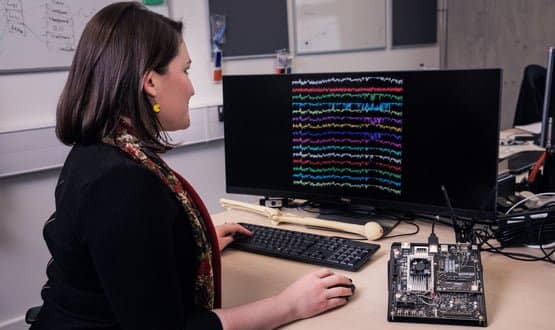UK innovation agency grants £865k to mobility AI project
- 11 October 2018

Innovate UK has awarded more than three-quarters of a million pounds toward the development of an artificial intelligence platform that could improve care for people with mobility issues.
A consortium led by Cambridge Bio-Augmentation Systems (CBAS) is developing a machine learning system that analyses the daily movements of patients with orthoses and those at risk of falls.
It is hoped that the technology will help clinicians develop a better understanding of the needs of individuals and allow them to track patient progress more accurately.
Trials of the project begin this month and will last until March 2020, following a £865,000 grant from the UK’s innovation agency.
Data will be gathered from movement-tracking wearables given to patients and analysed by an AI platform developed by CBAS.
Oliver Armitage, co-founder and CSO of CBAS said: “We are so pleased to be taking our AI platform to the next stage and trying it with real patients in the field.
“Having the support and validation of Innovate UK shows the appetite for AI solutions in healthcare, and the enthusiasm of our partners shows the willingness of the industry to begin incorporating these types of solutions into their products.”
Results from the trial will be validated by the Human Performance Lab at Queen Mary University of London.
Dr Aleksandra Birn-Jeffery, lecturer in bioengineering, from Queen Mary University of London, said: “Not only is it an exciting opportunity to validate new technology that could make such a difference to patient care pathways, but we will be working alongside some incredible companies that are all striving to improve healthcare.
“This grant also provides the chance to start delving into understanding how we can define whether an individual’s movement pattern is improving to potentially, in the future, further improve patient gait assessment.”
Other partners involved in the consortium are Andiamo, which makes 3D-printed orthotics for children, as well as health wearable start-up, CUSH Health.
Naveed Parvez, co-founder and CEO at Andiamo, said: “It is clear to us that the future of healthcare will and must be driven by outcomes and evidence. Orthotic users want to better understand their condition and their journey to an outcome, clinicians want to deliver evidence-based practice, and providers want to understand what is ‘good’.
“The support from Innovate UK will drive this critical change faster, and allow us to understand how healthcare will adopt a move to a much greater transparency in orthotic treatments.”
CUSH Health, which specialises in ‘smart’ devices for old people, is also developing an AI-assisted remote monitoring and telehealth platform to combat falls in the elderly.
Co-founder Kalon Hewage said: “As a new company this is an amazing opportunity to validate our solution while working with incredibly talented and respected partners. As a practising surgeon I see first-hand the effect that falls have on patients and their families and this is even more worrying with the current healthcare model stretched to breaking point.
“Healthcare innovation, however, offers the opportunity to decrease falls-related morbidity and mortality while also decreasing A&E attendances and acute hospital admissions.”



